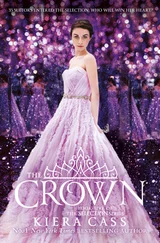Thomas Cook - The Crime of Julian Wells
Здесь есть возможность читать онлайн «Thomas Cook - The Crime of Julian Wells» весь текст электронной книги совершенно бесплатно (целиком полную версию без сокращений). В некоторых случаях можно слушать аудио, скачать через торрент в формате fb2 и присутствует краткое содержание. Год выпуска: 2012, ISBN: 2012, Издательство: Grove Press, Жанр: Криминальный детектив, на английском языке. Описание произведения, (предисловие) а так же отзывы посетителей доступны на портале библиотеки ЛибКат.
- Название:The Crime of Julian Wells
- Автор:
- Издательство:Grove Press
- Жанр:
- Год:2012
- ISBN:9780802194589
- Рейтинг книги:5 / 5. Голосов: 1
-
Избранное:Добавить в избранное
- Отзывы:
-
Ваша оценка:
- 100
- 1
- 2
- 3
- 4
- 5
The Crime of Julian Wells: краткое содержание, описание и аннотация
Предлагаем к чтению аннотацию, описание, краткое содержание или предисловие (зависит от того, что написал сам автор книги «The Crime of Julian Wells»). Если вы не нашли необходимую информацию о книге — напишите в комментариях, мы постараемся отыскать её.
The Crime of Julian Wells — читать онлайн бесплатно полную книгу (весь текст) целиком
Ниже представлен текст книги, разбитый по страницам. Система сохранения места последней прочитанной страницы, позволяет с удобством читать онлайн бесплатно книгу «The Crime of Julian Wells», без необходимости каждый раз заново искать на чём Вы остановились. Поставьте закладку, и сможете в любой момент перейти на страницу, на которой закончили чтение.
Интервал:
Закладка:
He shook his head at the monstrousness of it. “I am what you call ‘small potatoes’ compared to this one who would have killed millions. As Stalin did. And Mao.” He thumped his chest. “I, El Arabe, was never such a killer as these two Reds.”
It would have been a passionate attack on ideological extremism had El Arabe’s own hideous acts not been equally extreme, but I felt it prudent to say nothing about this.
“I gather that you know why we’ve come here,” I said.
El Arabe nodded, then looked at Loretta. “Leon told me about your brother. He said you believed he was perhaps going to write about me in his next book.”
“Perhaps,” Loretta said. “Just before he died, he took out a map of Argentina. He had even circled the name of this village.”
This information seemed not to surprise El Arabe in the least.
“As you see, I am not hard to find,” he said. “I hide from no one. I wish only that those Reds who now stink up the halls of Casa Rosada do not cross the border.” He pointed to an old hunting rifle that leaned against the far wall. “I would fight, but I have nothing but this-what do you call it? — this. . popgun. Even so, they do not come. Even so, they fear me. Do you know why? Because I know their secrets, these men at Casa Rosada. I know they are not so holy as they say they are. They know my crimes because I have not hidden them. But I know the crimes they hide.”
He smiled in the way of one who could easily prove his point. “Guilt makes men tired and skinny.” He patted his full belly. “I have no such problem.”
A rattle of pots and pans came from the other room.
El Arabe shook his head. “It is hard to think with such commotion,” he said.
I glanced toward the kitchen, where I could see the woman stumbling about, her hands shaking violently.
“She probably has Parkinson’s disease,” I said. “Or something like it.”
El Arabe waved his hand; then his eyes shot over to Loretta. “Your brother had come to me before. Back in the old days. He was looking for a girl. He thought I might know where she was.” He stopped and stared at me sullenly and with such a sense of volcanic violence that I felt a cold streak of genuine fear.
Now he burst into a raucous laugh.
“See what I can do?” he asked. “An old man, and I can still fill a heart with fear.” He laughed again, a great, self-satisfied laugh that shook his belly violently. “With this look, too,” he said and seemed to clamp down upon me with his eyes, so that I felt like little more than a small animal in a steel trap. “This one could really shut them up. Even when they were screaming, it would shut them up.”
He laughed again, and quite suddenly his entire demeanor changed. It was as if a cloud had parted to reveal a wholly different person, one whose every aspect had been clothed in shadow but which now became clear in the light.
“Shall I speak French to you, my American friends?” he asked in perfect English. “Should I speak German?”
The transformation continued, and all the earlier features of his disguise fell away; he was no longer the slick-haired thug but was what he immediately claimed to be.
“Better that I should speak the Spanish of Castile,” he said, “for I am Spanish, and this peasant patois I speak to such a one as that wretch in the kitchen is not my native tongue.”
“I see,” I said quietly.
“As Julian knew, a great spy must be a spy from birth,” El Arabe said. “He must have played a role all his life.”
He was now as refined a worldling as could be imagined in any novel of intrigue. All his boorishness and vulgarity had simply dropped away like pieces of an old costume. Beneath it, there was no swagger, no bravado. I could almost imagine him in evening dress, having brandy and a cigar in the staterooms of Madrid, exactly the sort of suave foreign agent my father had dreamed of being.
“It takes intelligence to play a buffoon, and I fooled them all. Even Julian was fooled by my disguise. But those days are gone and there is no need for me to play this trick.” His laugh was no longer of the belly-jerking sort but was now the soft chuckle of a man in his club. “Julian. You have come to speak of Julian. What a naive young man he was, looking for this girl.” Now his laughter turned cold and mirthless. “He came to me because the Reds had sent him. They had told him I was in charge of many evil things, and so I perhaps might know of this missing girl.” He cocked his head and glanced from one side to the other. “Shall I tell you about your friend, your brother?” he asked. “He was looking for this girl, but shall I tell you what he found?”
Warily I nodded, and Loretta whispered, “Yes, tell us.”
And so he did.
29
At the end of Heart of Darkness, Marlow is drained by the tale he has just related, emptied not of energy but of belief. It is as if the darkness he describes has dialed down the light in his soul.
So it seemed also with Loretta, at the close of El Arabe’s tale, and so it certainly was with me.
“Do you believe what he told us?” she asked a few minutes into our drive back to town. We had been facing the road in complete silence.
“Every word,” I answered.
She looked at me. “Why?”
“Because it fits,” I said.
I thought of a moment in The Secret Chamber, when La Meffraye stands on the ramparts at Machecoul, staring down at the thirty men that the Bishop of Nantes has sent to arrest her master. From that height she considers the crimes in which she was complicit, and their consequences, and she knows, absolutely, that she is bound for hell.
“Julian could see nothing but darkness after that,” I said softly, now thinking of how hideous it must have been for him, the scene he’d witnessed at El Sitio.
“I remember something I said earlier,” Loretta said. “That if Julian ever saw an atrocity, it would have unstrung him.”
“And it did,” I said.
Loretta clearly understood that something had also unstrung me as well.
“El Arabe’s last question,” she said.
With that simple reminder, I was there again, sitting on the veranda, listening to El Arabe. But now there was the added element of foreknowledge, and I found myself imagining as much as recalling his narrative, tasting the dust in the air, seeing the swirl of the dogs as they tore into each other, feeling the small droplets of blood that shot out from the ring, and hearing Julian’s voice over the roar of the crowd.
“That one is a killer.”
El Arabe turned to him. “American?”
Julian nodded, smiled. “A bankrupt one if I keep betting on the wrong dog.”
El Arabe grinned, pulled a red handkerchief from his pocket, and swabbed his bare chest. “Bet on John Wayne in the next match. With him you will get back your money.”
Julian laughed. “John Wayne, really?”
“He is my dog. I am big fan for John Wayne.” He swayed slightly and hitched his pants. “Howdy, Pilgrim,” he said, and offered his hand.
“Julian Wells,” Julian said as he took it.
“Where you are from?” El Arabe asked between swigs of beer.
“New York.”
El Arabe reached for a bottle, opened it, and thrust it toward him. “We drink to friendship, eh? America and Argentina.” He pounded his chest with his right fist. “Brothers.”
Julian took a long pull on the bottle. “Brothers,” he said.
They were two actors, I thought, playing out the scene in my mind: Julian, the naive American with a vague lust for adventure; El Arabe, the crude peasant infatuated with American cowboys. Encased in their roles, they acted their way through the next few hours, Julian betting on El Arabe’s dogs and almost always winning, so that as the evening deepened, his roll of cash grew thicker, a fact El Arabe was careful to notice because he needed Julian to think him not only a peasant buffoon, easily outwitted, but also a man who could no less easily be bribed.
Читать дальшеИнтервал:
Закладка:
Похожие книги на «The Crime of Julian Wells»
Представляем Вашему вниманию похожие книги на «The Crime of Julian Wells» списком для выбора. Мы отобрали схожую по названию и смыслу литературу в надежде предоставить читателям больше вариантов отыскать новые, интересные, ещё непрочитанные произведения.
Обсуждение, отзывы о книге «The Crime of Julian Wells» и просто собственные мнения читателей. Оставьте ваши комментарии, напишите, что Вы думаете о произведении, его смысле или главных героях. Укажите что конкретно понравилось, а что нет, и почему Вы так считаете.












